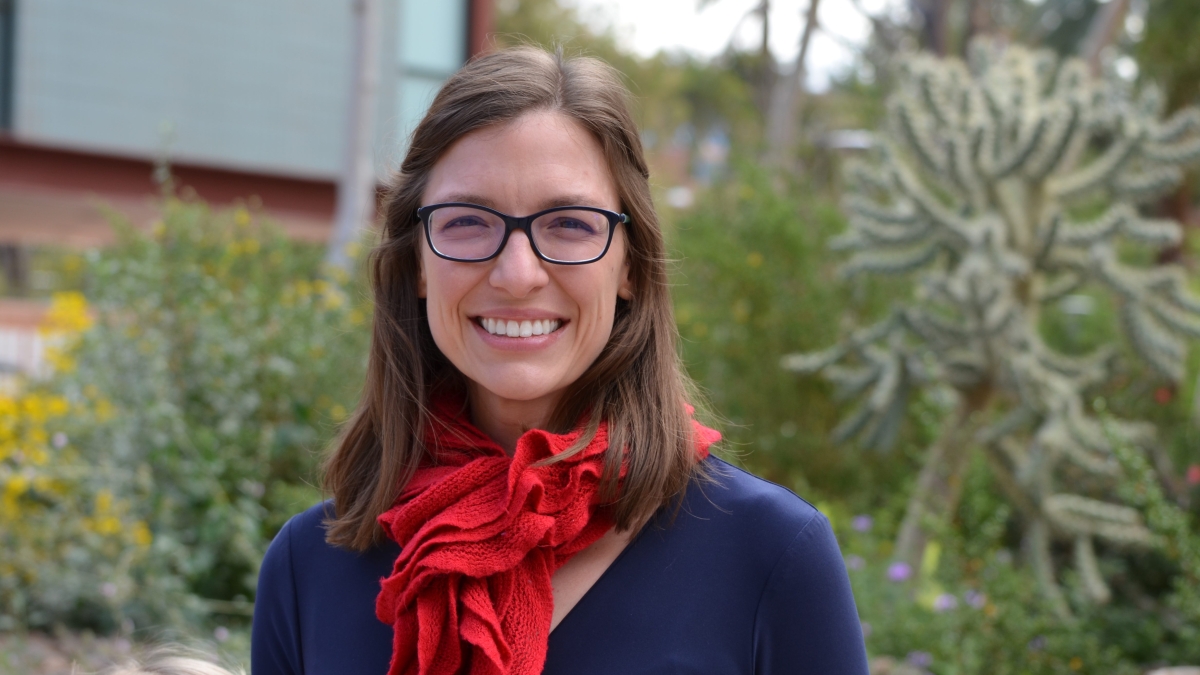A better approach: Studying genetics by accounting for sex differences

Professor Melissa Wilson and colleagues developed a set of guidelines and recommendations that are expected to profoundly impact future genetic research and contribute to more accurate and comprehensive findings. Photo courtesy Melissa Wilson
Biological sex differences, such as differences in hormones, reproductive organs and chromosomes, can influence how our genes are read and how they interact with other factors in our bodies. This means genes may influence certain traits or diseases differently depending on sex.
According to Arizona State University Professor Melissa Wilson, from the School of Life Sciences, failing to account for these sex differences in genetic studies can lead to crucial information being overlooked and incomplete findings. By considering sex differences in genetic studies, scientists can gain a more precise and comprehensive understanding of how genes shape traits and contribute to the development of diseases.
Wilson has published a new paper in the prestigious journal Cell titled “Quality control and analytical best practices for testing genetic models of sex differences in large populations.”
In the publication, Wilson and colleagues developed a set of guidelines and recommendations that are expected to profoundly impact future genetic research and contribute to more accurate and comprehensive findings.
“The group came about as a set of people with complementary expertise all focused on different aspects of incorporating sex as a biological variable into genetics and genomics analyses,” Wilson said.
Genetic studies have traditionally focused on examining the entire population as a single entity, disregarding potential differences between sexes. However, Wilson’s research highlights the critical role that sex plays in genetic analyses and argues for the adoption of a sex-aware approach.
“Most studies of human genomics still exclude the sex chromosomes and do not appropriately investigate how disease risk in males and females may differ,” Wilson said.
The team meticulously analyzed existing studies and uncovered a wealth of evidence indicating that ignoring sex differences in genetic analyses can lead to skewed results and incomplete conclusions.
In the publication, Wilson and co-authors first talk about how to ensure the data to be analyzed is reliable; then, they give an overview and best practices for testing genetic models and mechanisms that may cause differences between males and females in how they show traits. Finally, they discuss important things to consider when studying these differences.
“We give several tangible guidelines for how to incorporate sex as a biological variable, from a genomic level to an individual level, that researchers can incorporate into their analyses,” Wilson said.
In addition to its potential impact on genetic research, this groundbreaking work has enormous implications for precision medicine and personalized health care. Recognizing the importance of sex differences in genetic research can facilitate the development of targeted treatments and interventions, ultimately improving health outcomes.
As other scientists keep building upon these findings, the hope is that a more inclusive and comprehensive understanding of genetics will emerge, revolutionizing the landscape of genetic research and medicine as we know it.
Wilson is also affiliated with the Center for Evolution and Medicine and the Biodesign Center for Mechanisms of Evolution.
More Science and technology

Breakthrough copper alloy achieves unprecedented high-temperature performance
A team of researchers from Arizona State University, the U.S. Army Research Laboratory, Lehigh University and Louisiana State…

4 ASU researchers named senior members of the National Academy of Inventors
The National Academy of Inventors recently named four Arizona State University researchers as senior members to the prestigious…

Transforming Arizona’s highways for a smoother drive
Imagine you’re driving down a smooth stretch of road. Your tires have firm traction. There are no potholes you need to swerve to…

